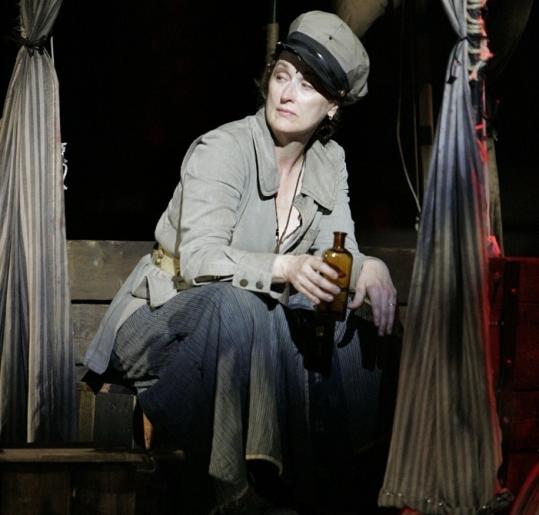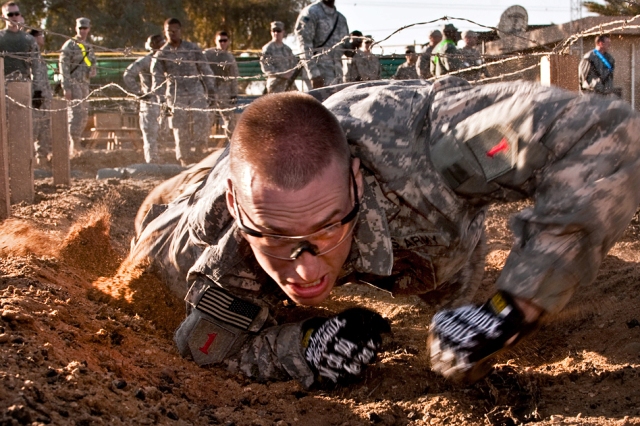At the beginning of Humanities Core in fall quarter, my understanding of war was primarily centered around soldiers and how killing others permanently scarred them, often leading to post-traumatic stress disorder. As a Cognitive Sciences major, I am naturally interested in how extreme situations such as war affect people’s psychology. However, my focus drifted in an entirely new direction, towards civilians in wartime (See: Tags), as the year progressed and my view of war became more complex.

Early in fall quarter, I became particularly interested in the distinction between history from above and history from below. Whereas I did not care much for history from above (e.g. Homer’s Iliad) because I am already so used to seeing these kinds of violent, hyper-masculine portrayals of war in the media, I became very interested in history from below. Readings set from this perspective, such as Bertolt Brecht’s Mother Courage and Her Children (1939), opened my eyes to the all-encompassing effects of war, which radiate beyond the structural ruins of war and soldiers who fought in it. This play, set during the Thirty Years’ War, explores the effects of war on commoners; however, Brecht denies the audience closure through Mother Courage’s lack of character development. As a result, the audience is able to critically analyze the aftermath of war without their judgment being clouded by joy from Mother Courage learning her lesson. I noticed that other plays, films, works of literature, and the like similarly deny the audience closure or a way to identify with characters in order to force them to think about—rather than feel for—what is portrayed. For instance, Ruth Kluger’s Still Alive: A Holocaust Girlhood Remembered (2003), an autobiographical account of Kluger’s experience in Auschwitz, rejects the idea of sentimentality so readers can critically think about the Holocaust. My Research Paper artifact, Francis Ford Coppola’s Apocalypse Now (1979), similarly isolates viewers with its absurdity and lack of closure so they can consider the implications of the Vietnam War.
I also found propaganda very interesting. Unlike the aforementioned examples, propaganda exploits emotion and national pride in order to suspend thought and manipulate the masses. Before taking Humanities Core, I only thought of propaganda’s function in an oppressive regime, such as in Adolf Hitler’s Nazi Germany. However, as the year went on, I learned how widespread and insidious propaganda can be. For instance, it was used to increase anti-Communist sentiment during the Cold War and, more recently, to desensitize Americans to the use of torture. Although it is generally agreed that the media has a huge influence on people’s expectations and beliefs, Humanities Core cited concrete examples, which helped my understanding of the prevalence of propaganda. For example, in winter quarter, English Professor Rodrigo Lazo argued how “requisite torture scenes” in film and television—such as in the recent action-adventure film Deadpool (2016)—watered down people’s vehement disapproval of torture.
Although my primary interest became civilian life during wartime, I still remained curious about war’s effect on soldiers. I found out more about this when I interviewed Joseph, a veteran from the Vietnam War, for the Literary Journalism assignment. He recounted how strenuous training and the threat of fines molded him and his peers into disciplined, obedient soldiers who were ready to be deployed. Although he did not go to Vietnam himself, he witnessed many soldiers return home, irreparably damaged from the war. This raises the question of the morality of military training. Although this training makes soldiers more efficient, it also damages some of them so much that they are unable to readjust to society.

The debate on the morality of military training was further complicated when English Professor Carol Burke discussed how the atmosphere of power in the military contributed to the development of a rape culture. As evident in The Invisible War (2012), there is a pattern of the military denying female soldiers who had been raped justice. Instead, the military refuses to take action and gives the perpetrator the benefit of the doubt, continuing this cycle of sexual assault. This injustice is particularly upsetting because the military enables this violence to continue solely to preserve their reputation. Not only are these abused soldiers scarred by their experience in war, but they are also traumatized by their comrades. Hopefully the awareness raised on this issue will cause more changes to be made, but as of now, this is one of the persisting flaws in the U.S. military.
By exploring war from a variety of academic disciplines, historical contexts, and perspectives, I have gained a more thorough understanding of war and its consequences. My current opinion of war is that it is more complex than I originally thought. Humanities Core has helped me recognize war’s direct and indirect effects on soldiers and civilians, the implications of the mediation of war to those on the home front, and corruption within the military itself. Although I still believe that war can never fully be justified because it is an inherently evil act, I think that a lot can be learned from studying humanity’s response to war.
